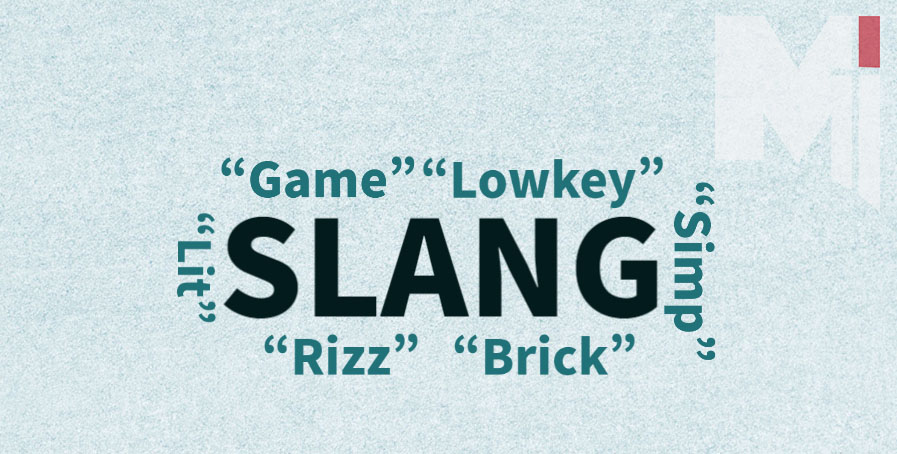Change in Slang: new terms infiltrate halls across America
Senior Will Baska reviews the depth of high school slang.
December 15, 2022
The teenage years come with a certain shift in everyday culture. For many, that shift comes in the form of language. Whether it be by the varying inflection of voices, or the words that come from those voices, lingual habits change with age. Every year, there appears to be a rise in this shift, with new slang filling the halls of high schools across America. Our school is not exempt from this phenomenon.
Though one might think this surge of lexicon would come with the arrival of a freshman class, junior Peter Dessert said the use of slang is equally distributed among all grade levels.
“Slang is just something that forms when people hang out with other people,” Dessert said. “I hear people from all over the school using it.”
According to Dessert, two words that have emerged in high school culture are “brick” and “rizz.”
“Brick is used for someone when they say something dumb,” Dessert said. “I personally enjoy using this term with my buds, calling them out when they act tomfoolerish.”
Despite “brick” carrying an obvious negative connotation, not all terms are used as insults. “Rizz” can carry a special, romantic meaning.
“Rizz is used as a word to state that someone is effective in picking up members of the opposite gender,” Dessert said. “People that possess ‘rizz’ are typically comfortable in a conversation with someone they are pursuing romantically.”
Though these words may appear to carry depth on the surface, senior Ryder Cahill said he sees all modern slang as one big inside joke.
“I don’t really use it unless it’s funny when it’s used,” Cahill said. “The context makes a big difference.”
While slang may play its role in a comical setting, junior Dory Latenser said she finds the movement interesting.
“It’s kind of crazy if you think about it,” Latenser said. “In 100 years, we will all be speaking different words. Some will stay, some will go.”
Though slang may fizzle out of teenage vocabulary with time, Latenser said it is still important to retain a basic understanding of the verbiage.
“You’ve got to keep up,” Latenser said. “It’s a lot harder to talk to people in your generation if you can’t use the language.”
Slang can be applied to many situations, yet Dessert said that he knows its best purpose is the traditional application to informal settings with friends.
“I doubt these types of words will stay prominent in my language for long,” Dessert said. “It’s just something cheeky and funny to say with the lads.”
As times change, many make sure to stay familiar with the shifts that occur to popular culture. Student vernacular is an example of this social science.
“I’m never being serious when I use it,” Cahill said. “It’s another way to have some fun.”







